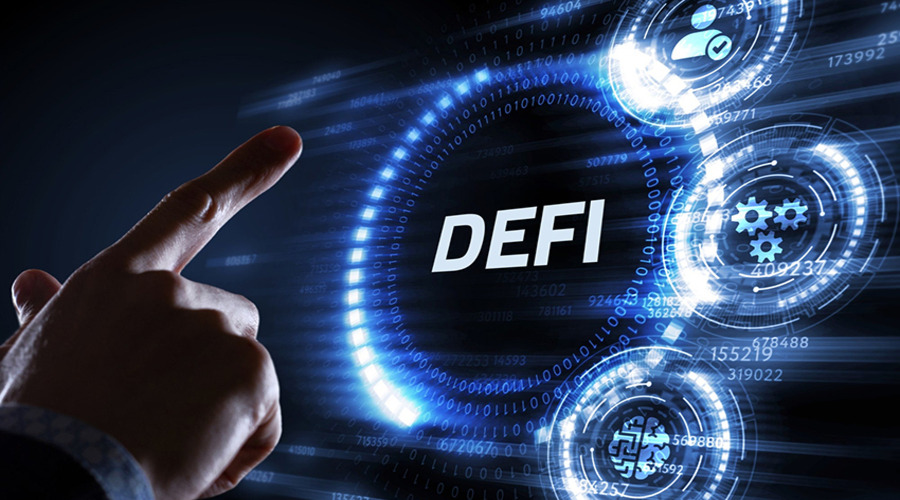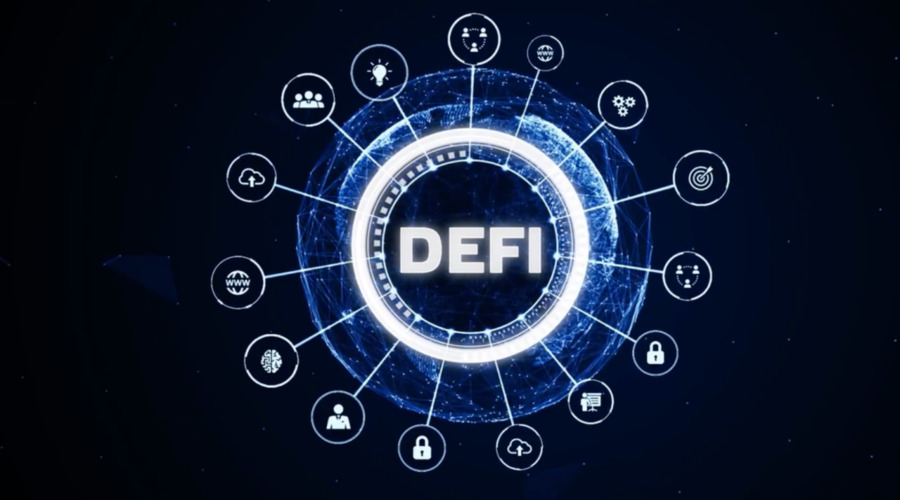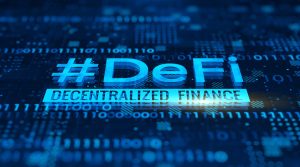Securing DeFi Infrastructure: Key Considerations for Developers

Securing DeFi Infrastructure: Key Considerations for Developers
With the rapid rise of decentralized finance (DeFi), it has become crucial for developers to prioritize the security of DeFi infrastructure. DeFi offers a revolutionary way to access financial services and products without the need for intermediaries. However, the open and decentralized nature of DeFi platforms brings forth a unique set of security challenges that developers must address to ensure the safety and trustworthiness of the ecosystem.
Introduction to DeFi
DeFi, short for decentralized finance, refers to a system of financial applications built on blockchain networks. It aims to provide open and permissionless access to various financial services, including lending, borrowing, trading, and more. The popularity of DeFi has grown exponentially in recent years, attracting billions of dollars in investments and capturing the attention of both individuals and institutional investors.
As the DeFi ecosystem expands, developers play a crucial role in securing its infrastructure. By employing robust security measures, developers can help protect user funds, mitigate risks, and foster the long-term sustainability of DeFi platforms.
Understanding DeFi Infrastructure
DeFi infrastructure encompasses a variety of components that work together to enable decentralized financial services. These components include smart contracts, decentralized exchanges (DEXs), oracles, and wallets.
- Smart contracts: Smart contracts are self-executing agreements written in code. They define the rules and conditions for transactions in DeFi applications. While smart contracts offer automation and transparency, they are also susceptible to vulnerabilities and exploits if not properly audited and secured.
- Decentralized exchanges: Decentralized exchanges allow users to trade cryptocurrencies directly with each other without relying on a central authority. While DEXs provide greater privacy and control over funds, they can be targeted by hackers and face liquidity risks.
- Oracles: Oracles act as bridges between blockchain platforms and real-world data. They provide external information to smart contracts, enabling them to interact with real-world events. However, oracles introduce a potential weak point in the security of DeFi applications, as they rely on trusted data sources.
- Wallets: Wallets are used by users to store and manage their digital assets. They come in various forms, including software wallets, hardware wallets, and web wallets. Ensuring the security of wallets is crucial for protecting user funds from theft or unauthorized access.
Security Challenges in DeFi Infrastructure
Despite the potential benefits of DeFi, its infrastructure faces several security challenges that developers must address diligently.
- Vulnerabilities in smart contracts: Smart contracts are at the core of DeFi applications, and any vulnerabilities or bugs in their code can lead to substantial financial losses. Malicious actors often exploit these vulnerabilities to execute attacks such as reentrancy attacks, flash loan attacks, and front-running.
- Risks associated with decentralized exchanges: While DEXs provide greater control and privacy, they are not immune to risks. Smart contract bugs in DEXs can lead to the loss of user funds or manipulation of trading activities. Additionally, low liquidity in some DEXs can result in price manipulation and impermanent loss.
- Issues with oracles and data feeds: Oracles play a vital role in DeFi by providing external data to smart contracts. However, if oracles are compromised or provide inaccurate information, it can lead to severe financial consequences. Manipulated data can affect the execution of smart contracts, leading to incorrect outcomes.
- Wallet security and user protection: User wallets are often targeted by hackers, and successful attacks can result in significant losses. Weak private key management, phishing attacks, and malware are common threats to wallet security. Developers need to prioritize the implementation of robust security measures to safeguard user funds.
Key Considerations for Securing DeFi Infrastructure
To enhance the security of DeFi infrastructure, developers should adhere to several key considerations throughout the development process.
- Code review and auditing: Thoroughly reviewing and auditing smart contract code is essential to identify and address potential vulnerabilities. External audits by reputable security firms can provide valuable insights and help improve the overall security of DeFi applications.
- Secure development practices: Developers should follow secure coding practices, such as input validation, access control, and proper error handling. Implementing security-focused development frameworks and leveraging established libraries can minimize the risk of introducing vulnerabilities into the codebase.
- Implementing multi-signature mechanisms: Implementing multi-signature (multisig) mechanisms adds an extra layer of security to transactions and asset management. Multisig wallets require multiple authorized signatures to approve transactions, reducing the risk of single points of failure and unauthorized access.
- Utilizing decentralized infrastructure: Developers can enhance the security of DeFi applications by leveraging decentralized infrastructure, including decentralized storage and hosting platforms. By distributing data and computational power, the impact of potential attacks can be minimized.
- Ensuring strong key management: Effective key management practices are crucial for protecting user funds. Developers should encourage users to adopt secure wallet solutions, utilize hardware wallets, and follow best practices for key storage and backup.
- Conducting regular security assessments: Security assessments should be conducted periodically to identify any potential vulnerabilities or weaknesses in the DeFi infrastructure. Regular penetration testing and security audits help uncover and address security flaws before they are exploited by malicious actors.
Best Practices for DeFi Developers

To further enhance the security of DeFi applications, developers should consider implementing the following best practices:
- Writing secure smart contracts: Developers should adopt standardized security practices, including input validation, boundary checks, and using well-audited libraries. Employing formal verification methods can help identify vulnerabilities and ensure the correctness of smart contract logic.
- Selecting reputable decentralized exchanges: When integrating DEXs into DeFi applications, developers should carefully evaluate the reputation, security track record, and liquidity of the exchange. Utilizing established DEXs with proper security measures in place minimizes the risk of vulnerabilities or manipulation.
- Choosing reliable oracles: Developers should choose oracles that have a proven track record of reliability and security. Utilizing multiple oracles and implementing data aggregation mechanisms can help mitigate the risk of oracle manipulation or data inaccuracies.
- Safeguarding user wallets: Educating users about wallet security best practices is essential. Developers should emphasize the importance of using hardware wallets, enabling two-factor authentication, and avoiding suspicious links or phishing attempts.
- Staying informed about security vulnerabilities: Developers must stay up-to-date with the latest security vulnerabilities and attack vectors in the DeFi space. Actively participating in security-focused communities, attending conferences, and following reputable security researchers can provide valuable insights and proactive security measures.
- Collaborating with the DeFi community: Engaging with the wider DeFi community fosters collaboration, knowledge sharing, and collective efforts to improve the security of DeFi infrastructure. Participating in bug bounty programs and contributing to open-source security initiatives can contribute to a safer DeFi ecosystem.
Future Trends in DeFi Infrastructure
As DeFi continues to evolve, several future trends are likely to shape the security landscape:
- Advancements in smart contract security tools: The development of more sophisticated tools and frameworks for analyzing, auditing, and securing smart contracts will become crucial. Automated vulnerability detection, formal verification, and improved testing methodologies will help developers build more secure DeFi applications.
- Standardization of security practices: The establishment of industry-wide standards and best practices for DeFi security will play a significant role in enhancing overall security. Standardization fosters consistency, promotes interoperability, and ensures a higher level of security across different DeFi applications.
- Integration of AI and machine learning in security measures: The utilization of AI and machine learning algorithms can enhance the detection of anomalies, identify potential security threats, and improve the overall resilience of DeFi infrastructure. AI-powered systems can provide real-time monitoring, threat intelligence, and predictive analysis to mitigate risks effectively.
- Regulatory frameworks and compliance considerations: As the DeFi ecosystem matures, regulatory frameworks and compliance requirements are likely to be established. Developers will need to navigate these regulatory landscapes while ensuring the security and privacy of DeFi applications.
Conclusion
Securing DeFi infrastructure is paramount to maintaining the trust and confidence of users in the decentralized finance ecosystem. Developers must prioritize robust security practices, conduct regular audits, and stay informed about emerging threats. By adhering to best practices and considering key security considerations, developers can contribute to the long-term success and security of DeFi platforms.
FAQs
1. Are decentralized exchanges completely secure?
Decentralized exchanges offer enhanced security compared to centralized exchanges. However, they still face certain risks, such as smart contract vulnerabilities and low liquidity. Users should conduct thorough research and choose reputable decentralized exchanges for trading activities.
2. How can I ensure the security of my DeFi wallet?
To secure your DeFi wallet, consider using a hardware wallet, enable two-factor authentication, keep your private keys offline, and avoid sharing sensitive information. Regularly update your wallet software and be cautious of phishing attempts.
3. What is the role of oracles in DeFi security?
Oracles provide external data to smart contracts, enabling them to interact with real-world events. However, they introduce a potential weak point in security. Choosing reliable oracles and implementing data aggregation mechanisms are crucial for maintaining the integrity of DeFi applications.
4. How often should security assessments be conducted for DeFi applications?
Security assessments should be conducted regularly, ideally performed by external security firms. The frequency of assessments may depend on the size and complexity of the application but should be conducted at least annually or whenever significant changes are made to the infrastructure.
5. How can developers contribute to the security of the DeFi ecosystem?
Developers can contribute to the security of the DeFi ecosystem by following secure coding practices, participating in security-focused communities, collaborating with the wider community, and reporting vulnerabilities responsibly. By sharing knowledge and collectively working towards a more secure DeFi space, developers can help safeguard user funds and improve overall trust.








